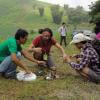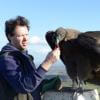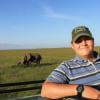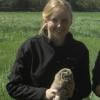Going into Business for Wildlife Conservation
13 April 2016 12:31pm
Automated Forest Restoration with Drones
10 March 2016 4:59pm
Collecting Your Opinions about Drones
11 April 2016 6:52pm
12 April 2016 9:26am
Hi Sean,
Thanks for sharing your survey - is there a specific date you'll be closing the survey?
It'd be great if you could share the results of the survey here, as I (for one) will be quite interested to see what comes back.
Cheers,
Steph
ContentMine: Mining Helpful Facts for Conservation
 Jenny Molloy
Jenny Molloy
5 April 2016 12:00am
Games for change Climate Challenge: A $10,000 game design competition
17 March 2016 2:03pm
4 April 2016 9:33am
Hah! I just logged in to post this. I talked with the G4C people the other day. Thanks fo beating me to it.
Sat 2 Apr: Science Makers: Wildlife and conservation technologies
29 March 2016 2:24pm
WCS Climate Adaptation Grants
29 March 2016 12:00am
Solar powered drone for conservation
16 March 2016 4:17pm
26 March 2016 12:03pm
Hey Gregg,
The project looks cool!
Just wondering how much you envisage the load carrying capacity of the drone to be? So being able to carry cameras, GPS, etc.
Also, do you see the price coming down later? $5000 sounds quite steep...
And finally, have you thought about creating it as an open source project? Since all the perks at this points are mostly symbolic, this way people would be more compelled to contribute.
Have a nice day,
Daniel
28 March 2016 12:27pm
Hi Daniel
Thanks for the interest in the project.
The load carrying capacity will be a few kgs. The battery I've sized at this stage is around 2kgs and should allow it to fly over night, but if this storage is increased in future it will impact the other loads. It is a tricky trade-off between flight time and capability.
I'm hoping to include both visual and thermal cameras on a gimbal but they will need to be miniature versions (adds to cost). The drone will definitely include GPS/autopilot and I'm also hoping to include onboard image processing in future so the drone can send an alarm when it notices something out of place. The video feed will also need to be encrypted so that poachers cannot use the drone as their own scouting vehicle.
The price tag of $5000 is for the first few prototypes and will come down with mass production and buying in bulk. I don't see it dropping much below $3000-4000 at current equipment prices though. For instance, the solar PV cells and charge circuit alone will cost around $1000 and the cost of even the cheap uncooled microbolometer therml imagers is over $1000. This isn't an average consumer drone but I've tried to keep the costs down as much as possible so it's feasible. I've also considered offering a stripped down drone of just the charging circuit and airframe so that people can add their own equipment and autopilot etc.
In terms of the perks, I tried to model this campaign after other campaigns that had a product already, which has been a mistake. The build diary included in some of the perks was my attempt at making it open source. I am considering reworking all the perks as it is unlikely to get any funding at this stage.
Thanks for the valuable feedback. Please let me know if you have any other questions or comments.
Cheers,
Gregg
Eggs Eggs and more Eggs
2 March 2016 1:05pm
24 March 2016 4:42pm
Latest news about this project was picked up by the BBC world service for a short interview
http://www.bbc.co.uk/programmes/p03nwl8g
You can also read more here:
http://spectrum.ieee.org/geek-life/hands-on/build-an-electronic-vulture-egg
Social Tech Seed: Applications now open
23 March 2016 3:59pm
NOAA Webinar 14th April: Ocean Exploration and MPAs - Priorities, Technological Advances and Partnership
21 March 2016 2:28pm
Indonesian Peatlands and the Need for New Monitoring Technologies
20 March 2016 6:15pm
How can technology help reduce manatee boat strikes?
9 February 2016 4:42pm
18 March 2016 5:23pm
Hi John,
Have you checked out Whale Alert? There may be some scope for applying/adapting the same technology for averting manatee strikes by applying it to the recreational boating sector.
Best regards,
Gavin

Underwater sensors
18 March 2016 12:39am
Could Big Data Have Saved Cecil the Lion?
4 January 2016 12:07pm
12 February 2016 7:16pm
It's very interesting what you say about the strength of a name. I do think that anthropomorphism can be a good thing in the case of conservation. By giving Cecil a name and a life story (incidentally a very cosy British name, which is interesting in itself), it brings the issue into emotional focus. We are attracted to characters and stories, not data. The plight of a named lion strikes a stronger chord than the numbing statistic of 600 "un-named" lions dying every year.
So do we care more about nature if we make anthropomorphise it? I think yes, as it creates a relatable personal connection with our own lives.
I'd like to get in touch with you next week as this is an area I am very interested in exploring and I hope I can be of help. Paul
14 March 2016 4:37pm
We're just starting to look a lot at Storytelling in Wildbook (http://www.wildbook.org).
This is what a data profile looks like in Wildbook:
http://www.whaleshark.org/individuals.jsp?number=A-001
While we allow for basic anthropomorphism via nicknaming, it's still a very data centric view of what a combined group of reserchers knows about the animal.
We have experimented with social media profiles which interestingly have an analogous data schema as mark-recapture:
http://fb.wildme.org/wildme/public/profile/WS-A-001
But we want to go ever further with storytelling mediums (e.g., story maps?) that can be automated from scientific data input, especially where cit sci data and reserch data can be reliably mixed.
So in addition to a name, we want to build a relationship through a portrayal of its life history and even potentially a view of the social network of the animal participates in (if such data can be shared safely.).
16 March 2016 7:22am
That's great Jason. I think your approach can be very successful. I'm a little bit familiar with Wild Book through my contacts at IBEIS, who I believe you work with quite closely. I'd love to see how the work we are doing at Internet of Elephants can incorporate whale shark data. I'll message you separately to discuss.
The Spatial Monitoring and Reporting Tool (SMART)
 Alexa Montefiore
Alexa Montefiore
15 March 2016 12:00am
An Internet of pigeons?
14 March 2016 4:16pm
Geographic Information System Equipment
9 March 2016 4:30pm
10 March 2016 11:46am
Hi Felix,
Thanks for sharing your question! I would have thought your course adviser might be the best person to advise about what equipment you would be required to take the course. However, GIS applications usually require access to a computer, a GIS program like ArcGIS or MapInfo, and access to information like satellite imagery or other data layers that are used by your GIS program. These should be provided by your university course - most universities have GIS labs where they teach you how to use the programs without the requirement to invest in equipment while learning.
Cheers,
Stephanie
10 March 2016 12:36pm
Thank you. I am doing pre reading and Information gathering, so I'll know what to expect and be prepared.
Thank you for your kind answer Stephanie.
Disruptive Technology: Embracing the Transformative Impacts of Software on Society
10 March 2016 12:00am
Survey on training in animal movement & remote sensing
9 March 2016 4:36pm
Comparing Geolocator and High-Precision GPS Data
 Eldar Rakhimberdiev
Eldar Rakhimberdiev
9 March 2016 12:00am
Mapping Reduced-Impact Logging with Lidar
 Justine E. Hausheer
Justine E. Hausheer
8 March 2016 12:00am
15th International Elephant & Rhino Conservation and Research Symposium
4 March 2016 12:00am
What do you do in your spare time?
2 March 2016 11:04am
GPS carrying vultures are being used to detect illegal dumps in Peru
22 February 2016 4:28pm
2 March 2016 7:27am
The police have tried to use New World Vultures to find dead bodies in Europe. The success was some what limited but not the fault of the birds.
This does open up a whole area of questions about the use of birds and some of the Unforeseen consequences. The latest amazingly stupid idea of using Eagles to bring down drones that was/is being considered by the British police after the Dutch police showed a video of a Juvenile Bald Eagle doing the same. The vultures that are now being deliberately killed in Africa because naturally they are giving away the location of a poached elephant or Rhino. The poor Griffon Vultures that keep being arrested as spies in the middle east as they have rings that have come from Israel on there legs.
There are quite often side effects to these uses of birds that are unforeseen at the out set but usually end up cost the animal involved.
Integrating UAV imagery into ArcGIS
1 March 2016 2:34pm
The Blue Economy Challenge
28 February 2016 12:00am
Funding and Job Opportunities
26 November 2015 2:21pm
26 February 2016 3:26pm
The Elephant Listening Project at the University of Cornell is looking a Postdoctoral research to study forest elephants in central Africa using a combination of field observations and acoustic recordings. More info.
Mohamed bin Zayed Species Conservation Fund Grants for Species Biodiversity
26 February 2016 12:00am
New paper in Nature on Landsat data to reduce deforestation
25 February 2016 10:15am















13 April 2016 10:56am
Hi Lot, great to see you here too.